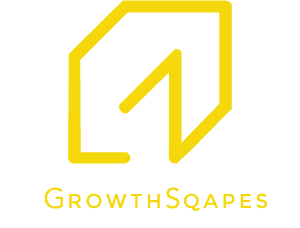At regular intervals, organizations engage with their employees in performance conversations to share where things are and where they need to be and maybe a glimpse of, what holds for the employee in the future. The idea for these performance dialogues is to show the employee the quintessential mirror of how things are and to show transparency and openness in the present and for the foreseeable future. Through this space, we try to explore and reflect on how performance dialogues can become a series of conversations that if handled well can bring out the best in people and may change the trajectory of their workplace performance.
Up first, let’s try and address what we understand by performance dialogues.
Performance dialogues are a documented and time-sensitive conversation between the supervisor and the team member regarding performance in the role, that ensures employee effectiveness and engagement and may make the employee more future-ready. As supervisors and subordinates get together to have performance conversations, from time to time, we also look at the finer nuances that a supervisor/manager must keep in mind to have meaningful and engaging performance conversations.
At the very outset we need to understand that performance dialogues are not just about feedback. That’s the first paradigm we need to change, Every supervisor will be well-off in understanding that this conversation does not just focus on one-sided feedback, it’s a dialogue, and hence it should go both ways. Additionally, organizations that embark on leadership development programs in India are now seeking to develop this skill in their managers through the middle management training and first time manager training programs. So, let’s try to dive deep and understand how managers can make performance dialogues more engaging & effective.
Make uninterrupted time for this: If you are a supervisor and are planning to have a performance conversation, make completely uninterrupted time for the same. Mobile phone on silent mode from both sides and a room that is comfortable and private to start with. Know this, that your team member will be guarded during this conversation, hence making them feel comfortable will be the least that we can do to start the dialogue.
Keep your biases to yourself: Please keep your biases about the team member you are having a dialogue with away or to the very least. Your team member will sense that there are negative biases at play during the dialogue and hence may make them more guarded and that may derail the whole dialogue. Go for this dialogue with an open mind with an intent to learn and understand about the other person and what they are communicating. The said and the unsaid both.
Seek first to understand and then to be understood: Allow your team member to share more about the work and their achievements. Listen with both your heart and mind. Build as many agreements as possible as that may make the colleague more open, effective, and engaging.To understand the other person better , ensure to doyour homework well. Deep dive into the data and check what kind of questions you may want to ask to bring in more clarity. Not knowing the full data about the performance of your team member dilutes your credibility and makes you look unprepared.
Feedforward and not feedback: Make the dialogue as constructive as possible and more future looking: While in praise, share the strengths of the colleague that they bring to the table and what those strengths can do for them, their role, and most importantly for the organization. Share the areas of improvement as neutrally as possible and not personally. Keep in mind that the areas of development must not be a laundry list, but just a couple of them that are the most important for the development of the colleague. This would help them drive their energies accordingly.
Keep the dialogue open both ways: Since this is a dialogue and the endeavor is to keep the conversation open both ways, allow the colleague to share perceived areas/ Behaviors where in you can also work on. This shows emotional maturity from you as a leader who also can work on areas. Once decided, make these areas a critical part of your “To Work On” list for the coming months. Here’s a success mantra: accountability works both ways.
Have check-in performance dialogues regularly: Performance dialogues do not have to be a year-end activity. When it’s too late to work on areas, the conversation becomes past-oriented rather than present and future-focused, and that almost is a waste of time rather than something constructive. Instead, make time regularly say, once a month, if that works for you to have to check in dialogue and focus on agreed-upon areas.
Don’t take the high ground with your colleague during the dialogue: There is every bit of tendency and temptation for you as a supervisor to take the high ground during the performance dialogues. Keep it to a bare minimum and allow yourself to come to the level of your colleague. Let’s not forget, that this conversation and this dialogue may have the potential to change the career trajectory of your colleague and not for the good all the time. Here’s a pro tip: operate from reason and not your designation.
Present your authentic self: Last but not least important, no matter how skilled you are, if your colleague feels that you are trying to manipulate them, or lead them in a completely different direction they may switch off and become more guarded. Being authentic and open and far more important character traits than just fancy communication skills.
This blog has been written by Rupender Khaira, an Associate Partner with Growthsqapes.

